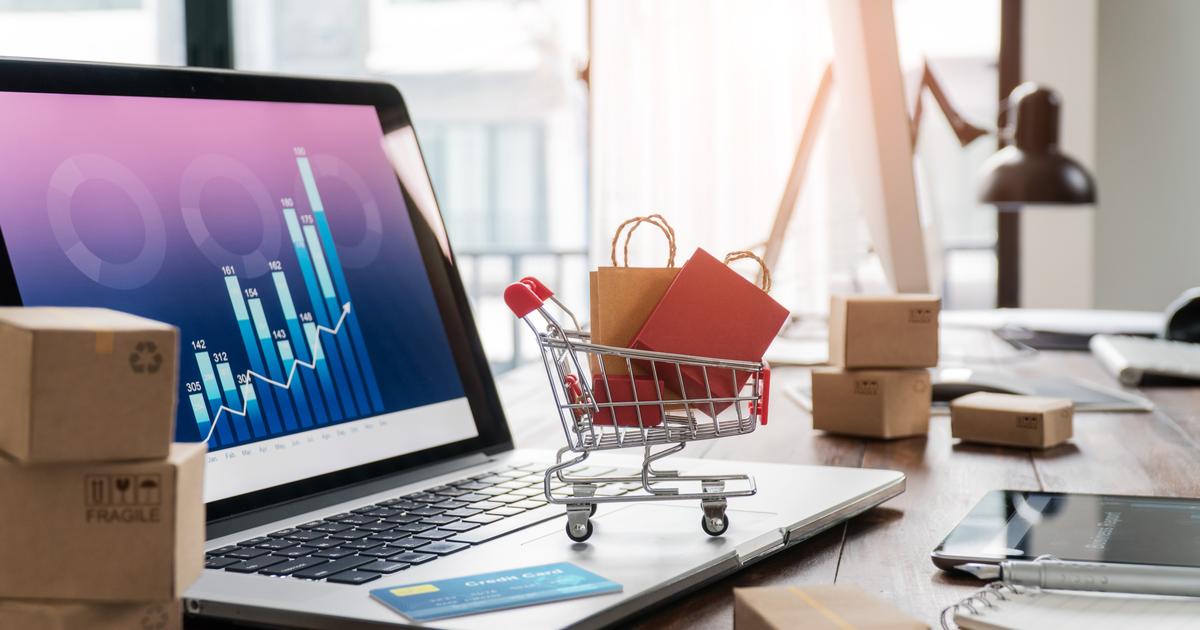Asked in the pandemic:
Many sports were not allowed to be practiced in lockdown, so many people switched to running - sports retailers such as Adidas and the Frankfurt running shoe store benefited
Photo: Michaela Rehle / REUTERS
The first lockdown of the corona pandemic came on March 16, 2020. Like so many other shops, the Frankfurt Laufshop had to close its business overnight. But the specialist dealer reacted quickly. Owner
Jost Wiebelhaus
set up
a telephone hotline and online advice
on the very first day,
and even delivered the shoes to nearby customers by bike. There was also a strong presence in social networks. "We felt like a start-up," Wiebelhaus later told E-Tailment magazine. After all, the owners and employees had to deal with a completely new business model.
According to Wiebelhaus, the clientele reacted gratefully to the individual advice. A running style analysis was also built into the online advice - none of the major online retailers did that and strengthened customer loyalty. Of course, it was also an advantage that most team sports were banned during the pandemic, but jogging was not. Many new customers also tried running, who of course also needed the appropriate equipment.
The speed with which the running sports retailer responded to the changes brought about by the pandemic even made him a minor celebrity in the industry.
Wiebelhaus was
invited
by Rose Bike boss
Marcus Diekmann
(42) to the "digital talk" of the initiative "dealers help dealers" and spoke there for an hour with the German Amazon boss
Ralf Kleber
.
A few weeks ago, the Frankfurt running shop was also voted "Favorite Shop 2021" by the Germany-wide initiative "Germany buy locally".
Adidas - from manufacturer to retailer
Adidas boss
Kaspar Rorsted
(59) quickly recognized
that sporting goods are in demand during the corona pandemic
. Shortly after the lockdown, he massively expanded the online business, making himself more independent from traditional retailers, through which the sporting goods manufacturer previously sold the majority of its products and which was now closed. As a result, the Herzogenaurach-based company sold goods for well over four billion euros over the Internet in the Corona year 2020 - an increase of 53 percent, with a total turnover of almost 20 billion euros. Rorsted also played into the cards that direct sales are significantly more lucrative for the group than retail sales.
When the new strategy for the next four years was presented in March 2021, the focus was therefore also on online trading and sales in the company's own stores, which should contribute four-fifths to the planned sales growth in the future.
Rorsted intends to generate half of its sales without going through other retailers.
In the meantime, however, Adidas is struggling with problems again.
The idle factories in Vietnam, the ever-increasing freight rates and a boycott in China have led Rorsted to look more cautiously at the full year after a profit slump in the third quarter.
The Adidas boss does not expect the situation to ease again until spring 2022.
Evonik - lipids for mRNA vaccines
The specialty chemicals company Evonik has also reacted quickly to the pandemic.
In just eight weeks, the company in Hanau, Hesse, developed a system for the production of lipids and was able to start production of the fatty substances, which are so important for mRNA vaccines, as early as April 2021.
Development normally takes up to 18 months; Evonik had originally announced the opening of the plant for the second half of the year.
Lipids are important for the transport of the mRNA vaccine into the cells.
The synthetic fatty substances enclose the mRNA molecules and thereby protect them on their way into the cells, where they are first to be released.
They are therefore essential for the production of mRNA-based vaccines such as those made by the Mainz-based manufacturer Biontech and the US company Moderna.
The chemical company naturally benefited from the fact that it has been producing corresponding lipids in North America since taking over a Canadian manufacturer in 2016.
However, he is not allowed to export these due to a ban by the US government.
With the breakthrough of mRNA-based vaccines such as the corona vaccine from Biontech and Pfizer, a relevant market for lipids has now also emerged in this country, which has already paid off for the specialty chemicals company.
According to the annual report for the second quarter, the lipids for the mRNA vaccines recorded a significant increase in sales.
Overall, Evonik's revenues in the second quarter rose by 29 percent year-on-year to EUR 3.64 billion, and adjusted earnings before interest, taxes and duties rose by as much as 42 percent to EUR 649 million.
And the corona business could only be the beginning of a promising growth market.
After all, the Biontech founders
Özlem Türeci
(54) and
Uğur Şahin
(56) originally started to develop mRNA vaccines against cancer.
Evonik can therefore certainly hope that its lipids will also be used in completely different drugs in the future.
mg






